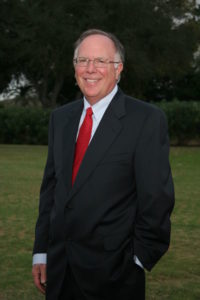EDITOR’S NOTE: This is one in an occasional series of opinion pieces on legislators and other Texans who are openly committed to sustaining government transparency and accountability. The articles are being prepared and distributed by the Freedom of Information Foundation of Texas and the Texas Press Association.
By Dave Montgomery
After 15 years in the Texas Legislature, Rep. Todd Hunter of Corpus Christi has distinguished himself as a relentless defender of press freedoms and government transparency, reflecting a passion rooted deep in his heritage.
The son of a journalist, Hunter grew up in a family he says was “very strong on freedom of speech and open government,” shaping what would become a lifelong pursuit as he went on to become a lawyer and lawmaker. Over the past decade, he has been instrumental in the passage of nearly every major bill strengthening First Amendment protections and preserving citizen access to government records.
“He’s unquestionably the number one champion of transparency in government,” said Donnis Baggett, executive vice president of the Texas Press Association, which represents most newspapers in Texas.
Hunter received the Open Government Lawmaker of the Year Award from the Freedom of Information Foundation of Texas in 2013. The Texas Press Association has named Hunter “Friend of the First Amendment” an unprecedented three times.
Countering the impact of two court rulings that limited access to public records connected to private or non-profit entities is expected to rank among the top open government challenges when the next Legislature convenes Jan. 10. The Texas Supreme Court decisions stemmed from cases involving the Boeing aerospace company and the non-profit Greater Houston Partnership.
Hunter anticipates a “good open-air discussion” on the legal ramifications of those cases but added that it’s too early to predict the outcome. Lawmakers must strike the correct balance between private and public interests without endangering access to public information, he said.
Lawmakers are “very open” to the concept of government transparency, Hunter said, and noted they will focus on how that translates to modern technology, such as access to emails.
“I see some great opportunity to educate a lot of new members on the importance of public disclosure, the importance of information,” said the Republican House member. “We’re going to go into a legislative session where sometimes our biggest hurdle is that technology has gone so fast, that sometimes our freedom of information laws haven’t caught up.”
Hunter said the Texas Public Information Act remains one of the strongest laws of its type in the country, despite a number of exemptions added by lawmakers since its passage in 1973 following the Sharpstown stock fraud scandal. He also suggested that state agencies should be doing more to fully comply with the act’s requirements.
“I think that probably agencies in general are very defensive,” he said. “Overall we just need to send a good positive message to encourage freedom of information within the agencies and all branches of government.”
Hunter entered the Legislature in 1989 and served until 1997, before taking a 12-year break to help raise his three children. He returned in 2009 and, now at age 63, chairs the powerful House Calendars Committee, charged with deciding which bills make it onto the House floor.
Hunter has cited the 1990 jailing of a Corpus Christi news reporter as a major catalyst behind his years of activism for transparency and press freedom. Libby Averyt of the Corpus Christi
Caller -Times, now the newspaper’s president, spent a weekend in jail for refusing to disclose unpublished information from her interviews with a defendant who was charged – and ultimately convicted – of capital murder.
Hunter’s body of work improving public information access grows every session.
One of his First Amendment victories was enactment of a press shield law protecting reporters from being forced to reveal their sources. He also led the fight for enactment of legislation to block retaliatory lawsuits aimed at chilling free expression; the anti-SLAPP law drew its name from the term used to describe the legal action – Strategic Lawsuits Against Public Participation.
In 2015, he pushed through legislation allowing reporters to cover issues of public importance contained in accusations that aren’t yet part of a government investigation. The so-called third-party allegations bill restored a longtime legal precedent that had been overturned by a court ruling.
In 2013, he helped pass a measure clarifying that emails, texts and other electronic communications by government officials regarding public business are public records, even if they are on privately owned devices. Hunter will return to that issue in 2017 by trying to close a loophole and make it easier for governments to get those records.
Texas needs to remain the nation’s “shining star” for First Amendment protections, Hunter said. At the core of his efforts is what he says is a simple truism: “Freedom of information just makes it a better government for everybody.”

